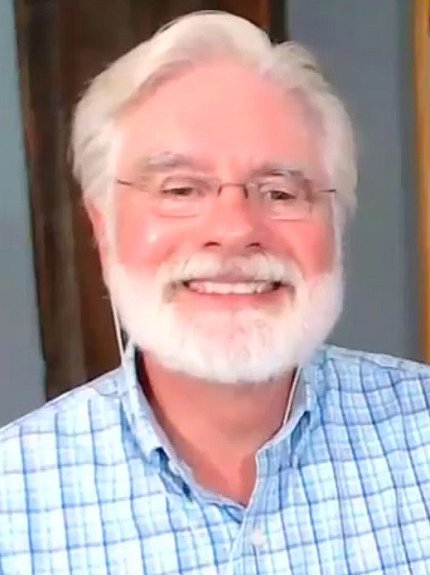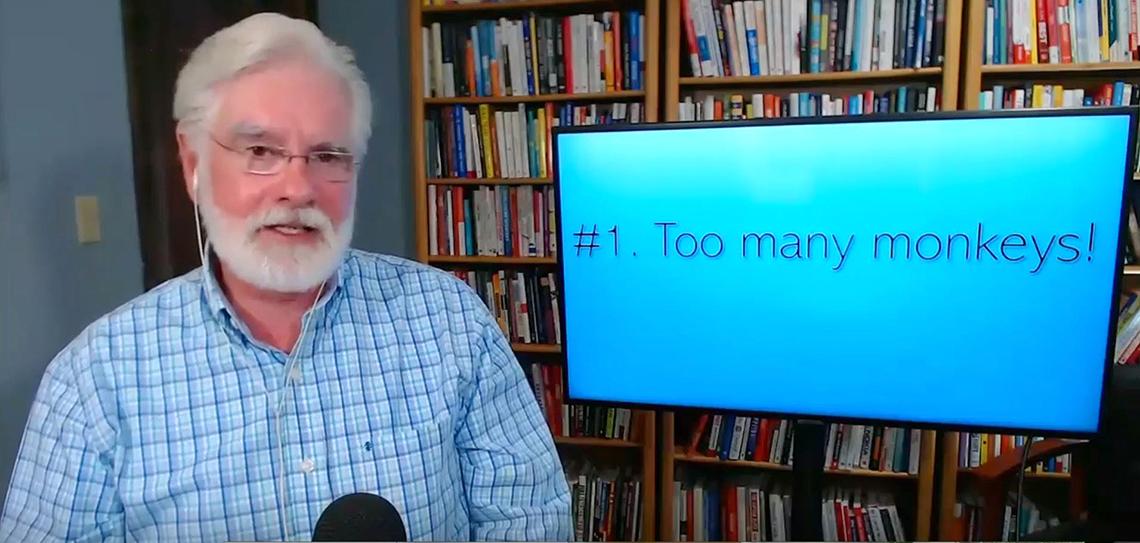‘Words Are Rudders’
Avoid Enemies of Energy in Workplace, Advises Rockwell

An energized workplace where employees love to come in—even if only virtually—every day is no accident and takes work to maintain, says Dan Rockwell, author of the Leadership Freak blog and co-author of The Character-Based Leader.
“There may be a few people who are just so naturally bubbly and excited that they can’t wait to come in, but it’s normal for us to spiral downward,” he said at a Deputy Director for Management Special Topics Seminar that was videocast recently.
There are six enemies of energy, Rockwell said. However, leaders can take steps to monitor, manage and fuel energy in teams.
First, there are too many of what he called monkeys, or next steps. Every leader routinely encounters this scenario: An employee walks into the office with a problem that must be solved. Leaders might unintentionally give themselves a monkey by promising to touch base on the problem later. Creating too many next steps to follow up on takes up time and energy. Experienced leaders ask: “Who owns this monkey?” and then figure out whether someone else can take the next step.
“The question to ask when someone comes to you with an issue is ‘What have you tried to fix this?’” he said. “What you’re doing is giving responsibility to people.”
Many times, people haven’t tried to solve a problem. In these instances, a leader must avoid solving it for them. Rather, a leader must encourage an employee to think the problem through and then come back with potential solutions.
Second, people know more negative-emotion words than positive or neutral-emotion words. Third, of the universal emotions—happiness, sadness, disgust, fear, surprise and anger—only happiness is positive.
Next, Rockwell noted that most people have a loud inner critic. This is why negative experiences stick with people longer than good experiences. People remember bad experiences in greater detail and recall them more often. Negative experiences are at least three times more powerful than positive ones, he said.
To counter these negative mental feedback loops, Rockwell advised leaders to keep in mind Nobel laureate Daniel Kahneman’s quote: “Nothing is as important as you think it is while you’re thinking about it.”
To counteract negative attitudes in the workplace, he said leaders must focus on the good stuff in an organization, compliment employees who are doing a good job and ask them, “How did you learn to be good at that?” or “What’s working?” to get people talking about what they do well.
“Words are rudders,” he said. “What we talk about is where we tend to go.”

Conversations about performance between leaders and their employees don’t need to be oppressive or draining. Rockwell advised that leaders ask their employees to come up with three things they would like to improve upon. When employees decide what to focus on, they’ve made a choice, and “choice is power and power gives energy.” Follow-up questions should be focused on why employees made the choices they did, how they plan to get better and what a realistic commitment to improvement looks like. This gives employees the ability to define accountability.
High-performing employees should have as much freedom as possible. Some low-performing employees might need more intervention. Leaders could ask four questions: “What did you try, how did it work, what did you learn and what do you want to try next time?”
Leaders also must set a positive example. They should regularly talk about which of their own skills they are trying to improve upon. “Because we don’t have enough performance conversations, we’re all terrified,” Rockwell explained. The solution is to talk about performance regularly.
Conversations about performance should occur during the last 5 or 10 minutes of the day. “At the end of the day, your words have more power than they do at the middle or beginning of the day,” he said. These conversations can be started with questions like “What did you accomplish today?” and “What’s your plan for tomorrow?”
“If you want to build a positive environment, you have to work at it,” Rockwell concluded.
